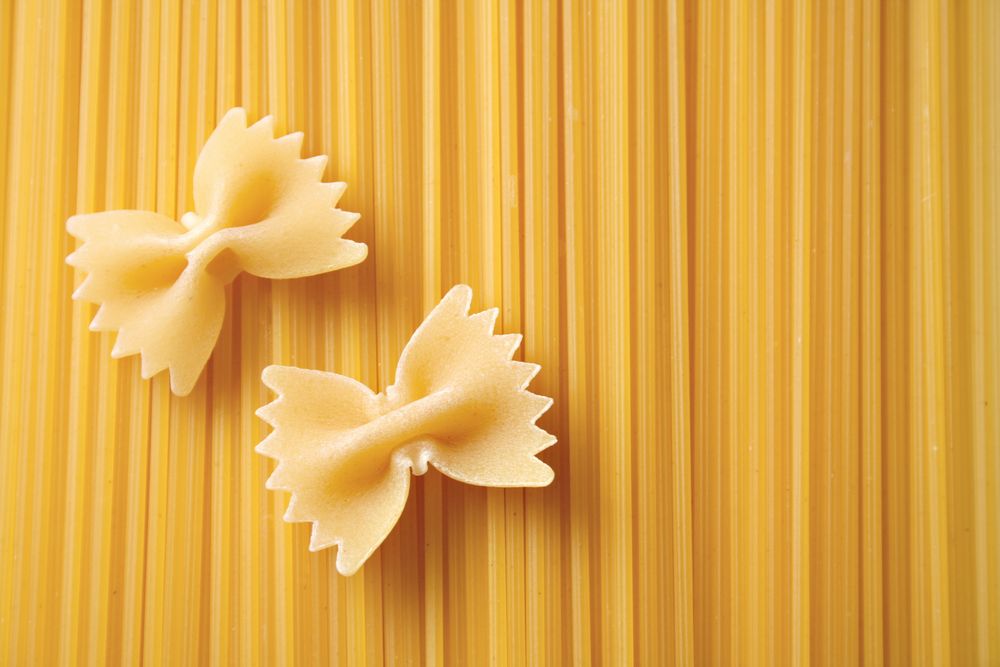Combination of different technologies to improve the shelf-life of fresh pasta. The spoilage of fresh pasta is mainly due to the metabolic activity of bacteria, yeasts and moulds that negatively affect the shelf-life and sensorial properties of a product. Hence, the industrial process for the production of pasta usually comprises heat treatments (such as pasteurization or technologies based on the use of microwaves) to limit this problem. However, these treatments generally compromise the sensory characteristics of the product. In this context, a recent study carried out by a group of Italian researchers (Lucera et al., 2014), suggests some changes to conventional production processes, to reduce the effect of heat treatments and extend the shelf life of fresh pasta. These changes suggest the use of antimicrobial agents (such as potassium sorbate, PS), an antimicrobial air filter used to cool down pasta temperature after heat treatment, and packaging under modified atmosphere (MAP). In particular, during the first testing step, the combined effects of the filter and MAP conditions (CO2:N2 70%:30%) were assessed. The second step consisted in analysing the influence of different concentrations of PS (500, 750, 1000 mg/kg), directly added to the dough in combination with the antimicrobial filter. In the last part of the test, finally, all changes were used simultaneously, using 1000 mg/kg of PS. In each experimental step, both microbiological and sensory quality was monitored. The results of the first part of the test demonstrated that the combination of the antimicrobial filter and MAP packaging can control microbial and moulds growth better than each treatment alone. In step 2, it was observed that, in combination with the filter, the most effective concentration of PS to control moulds appearance is 1000 mg/kg. The last step, finally, highlighted that with the combined use of the three treatments shelf-life is of about 40 days. This is particularly interesting because, presently, the shelf-life of the control product is of little more than one week.
References. Lucera et al., Journal of Food Processing & Technology, 5, 2014, 1-5




